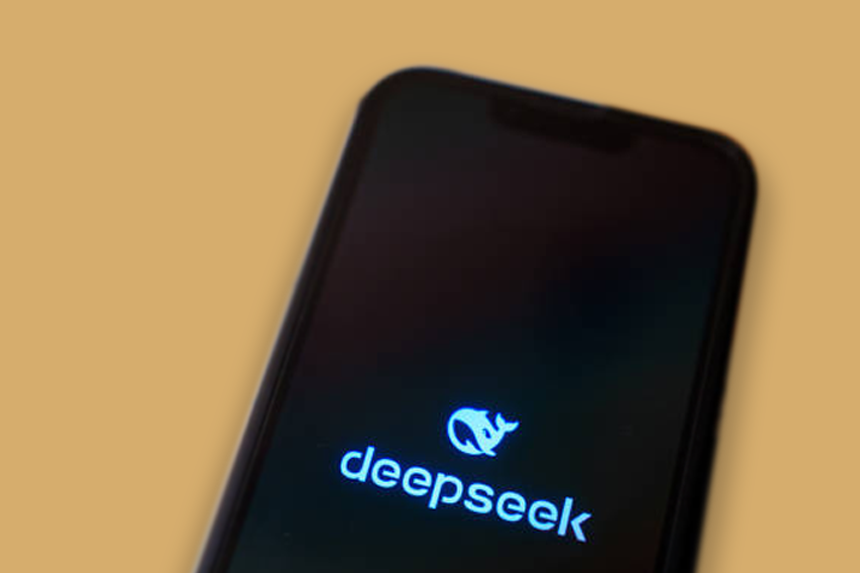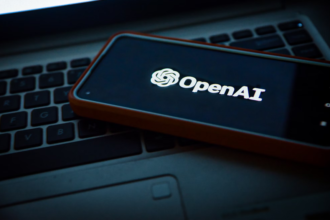When investors in the US and Europe were shocked by the unexpected success of a Chinese artificial intelligence (AI) program called DeepSeek, US tech company Nvidia lost more than a sixth of its value.
- What Makes DeepSeek a Low-Cost Disruptor in AI?
- Why Did US and European Markets React So Sharply?
- Does DeepSeek Threaten US AI Dominance?
- What Is the US Doing to Maintain Its AI Leadership?
- Why Is DeepSeek Facing Cyberattacks?
- Who Is Behind DeepSeek’s Success?
- What Does DeepSeek’s Success Mean for the Future of AI?
Only released last week, DeepSeek, a Chinese AI chatbot that was allegedly created for a fraction of the price of its rivals, has already surpassed all other free apps in the US in terms of downloads. Markets were rocked by the chatbot’s unexpected popularity, and on Monday, share prices of AI chip manufacturers and tech behemoths like Nvidia, Microsoft, and Google fell precipitously.
What Makes DeepSeek a Low-Cost Disruptor in AI?
The open-source DeepSeek-V3 model, which DeepSeek claims to have used to build its chatbot, was purportedly trained for a mere $6 million, a sum that pales in comparison to the billions spent by US competitors. Liang Wenfeng, the founder of DeepSeek, stated in a recent interview, “We were just following our own pace, calculating costs, and setting prices accordingly.”
However, this assertion has generated discussion among AI specialists. DeepSeek has created an AI model that challenges the industry standard while drastically cutting expenses by utilising open-source software and existing technology.
Marc Andreessen, a Silicon Valley venture investor and Trump advisor, compared the incident to “AI’s Sputnik moment,” alluding to the Soviet Union’s 1957 surprise satellite launch that took the United States by surprise. According to Andreessen, “this changes the entire competitive landscape,”
Why Did US and European Markets React So Sharply?
The emergence of DeepSeek caused a chain reaction in the world’s stock markets. Nvidia’s stock fell 16.9%, and rival Broadcom’s stock fell 17.4% as well. Alphabet, the parent company of Google, fell more than 4%, while Microsoft fell 2.14%, among other tech companies.
Europe was also not exempt. The stock of Siemens Energy fell 20%, and ASML, a Dutch manufacturer of semiconductor equipment, witnessed a decline of about 7%. The market has been caught off guard by the thought of a low-cost Chinese equivalent, according to one market expert. The profitability of competitors will be questioned if you suddenly acquire this low-cost AI model.
Does DeepSeek Threaten US AI Dominance?
The US has placed limitations on the export of cutting-edge AI chip technology to China, which coincides with DeepSeek’s success. Chinese AI engineers have discovered creative ways to cooperate and maximise resources in spite of these constraints. According to reports, a number of Chinese companies, including DeepSeek, have concentrated on creating AI models that utilise a lot less processing power, which would drastically cut expenses.
DeepSeek might jeopardise the investment case for the whole AI supply chain, according to one technology equity adviser. However, other people think that because the US has access to more sophisticated semiconductors, it still has an advantage. “US access to advanced chips is an advantage in an inevitably more restrictive environment,” according to a research by Wall Street financial analysts.
What Is the US Doing to Maintain Its AI Leadership?
The news arrives on the heels of a major announcement by US AI firms, including OpenAI, pledging $500 billion toward building AI infrastructure. President Donald Trump described the initiative as “the largest AI infrastructure project by far in history” and a key step in keeping “the future of technology” within the US.
This massive investment starkly contrasts with DeepSeek’s approach, which critics say has relied on previously stockpiled Nvidia A100 chips and open-source technology.
Why Is DeepSeek Facing Cyberattacks?
In the midst of its explosive growth, DeepSeek revealed that it had been the target of widespread cyberattacks. “We are temporarily restricting registrations to ensure continued service due to extensive malicious attacks on DeepSeek’s services,” the firm said in a statement. Current users are not impacted.
Although the attacks have not lessened interest in DeepSeek, they have sparked concerns about the app’s security and capacity to manage widespread attention.
Who Is Behind DeepSeek’s Success?
DeepSeek, which Liang Wenfeng founded in Hangzhou, China, in 2023, has shown promise as a disruptive force in the AI industry. Liang, a 40-year-old graduate of information and electronic engineering, was the founder of a hedge fund that supported DeepSeek in the past. He was able to create DeepSeek by combining these expensive chips with more accessible, less expensive ones because to his strategic accumulation of an estimated 50,000 Nvidia A100 chips before the US barred their export to China.
Liang acknowledged in an interview with The China Academy in July 2024 that he was surprised by the international reaction. “We didn’t expect pricing to be such a sensitive issue,” he stated. “Our only goal was to make the technology available.”
What Does DeepSeek’s Success Mean for the Future of AI?
The introduction of DeepSeek has sparked debate on the viability of US-led AI supremacy and the massive expenditures being made on AI infrastructure. Global tactics may change as a result of the Chinese company’s ability to develop a competitive AI model at a significantly lower cost.
Although the emergence of DeepSeek has caused existing players to lose faith in them, analysts caution that it is still unclear if Chinese companies will be able to maintain development in the face of limited access to cutting-edge technology. For the global AI ecosystem, DeepSeek’s success currently poses both a challenge and an opportunity.








